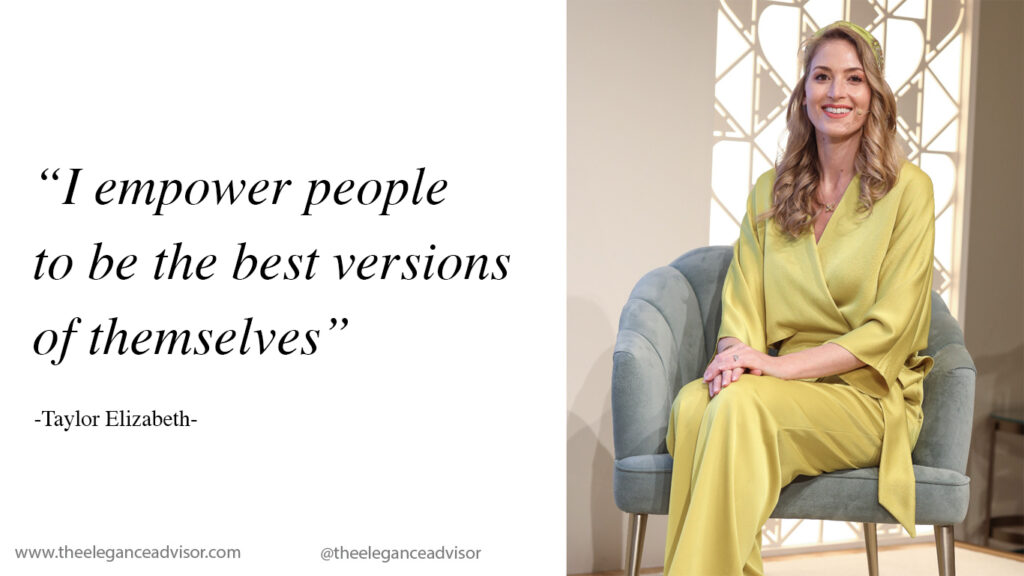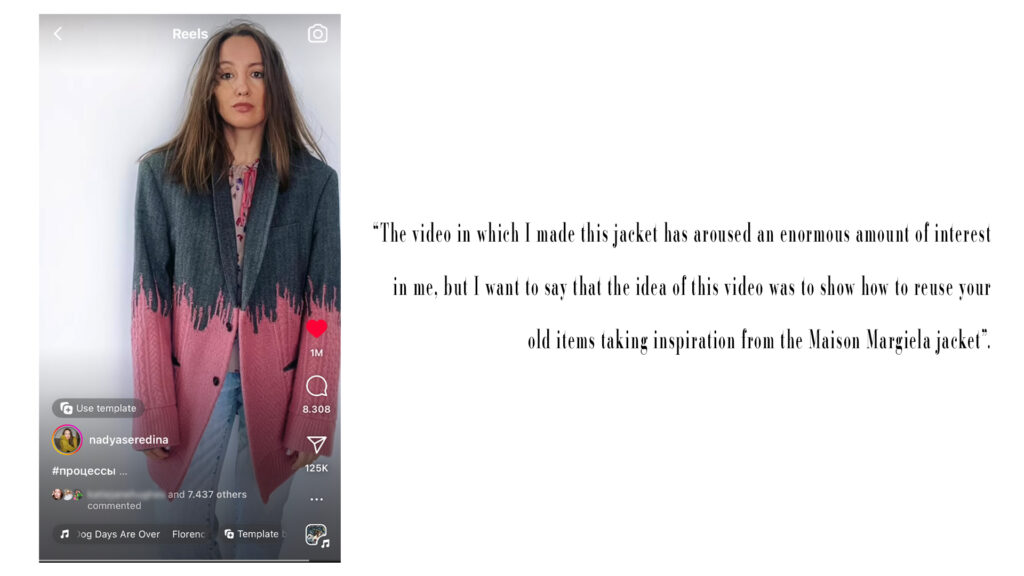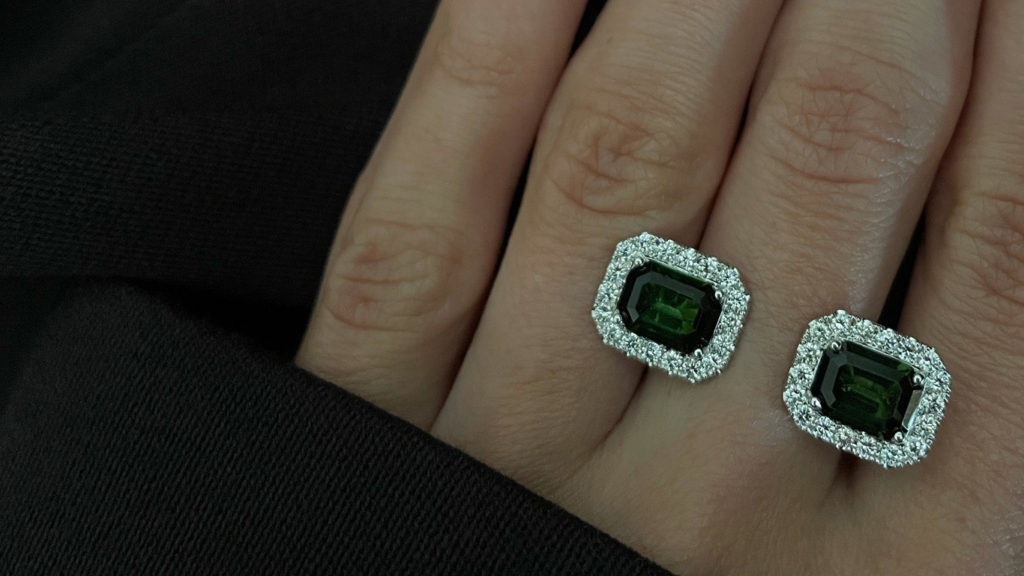Top recommendations from an etiquette advisor for those going to a business lunch meeting for the first time and for more experienced lunchers
What business etiquette rules should we follow? And how can they help avoid misunderstandings and awkward situations which can destroy first impressions of you or the company you’re representing?
To deep dive into these questions and sort out this issue I sought help from an award-winning certified Etiquette and Image Advisor and the founder of the Elegance Advisor Consultancy, Taylor Elizabeth. She told me how to accept or invite someone to a business lunch, behave once you’re there and deal with the difficult issue of payment if you want to make a positive impression and feel comfortable and confident.
Taylor gives a lot of tips on her Instagram account but also has online classes as well as face-to-face.

1. How often do people not know how to turn down an invitation without losing a partner/client’s trust? What should you say or write if you can’t attend?
I get asked this question a lot. In general, people don’t know what to answer when they don’t want to or can’t attend the meeting but they don’t want to lose trust or a good working relationship.
In business etiquette it’s important to acknowledge the other person’s invitation and express personal appreciation for it and answer in context, for example: ‘I’m traveling’, or ‘unfortunately I’m not in the city on that day’ or ‘I’m sorry, I’m not available that day’. And don’t give too many details of why you can’t attend, especially if you are going to lunch with another client or a brand; don’t mention this information.
If you do, they may think you are prioritizing another client or brand more than them. If you can’t attend on the requested day, you could suggest meeting them the following day or week.
“Any answer is always appreciated and shows that you respect that person and care about their time.”
The formula is “I appreciate your invitation, I really would like to attend but unfortunately I can’t ….”. And the second important rule is, you need to answer as soon as possible. If the invitation to a meeting is for the following week it is ideal to answer the day after you receive the request; don’t wait until the day of the meeting. For a brand your early answer gives them a chance to re-arrange or to plan other things on that day. Any answer is always appreciated and shows that you respect that person and care about their time. It is called RSVP (répondez s’il vous plaît in French or please reply in English) and is extremely important in a business field.
2. If I get an invitation to a business lunch with a brand or a company to which 20 people besides me are invited, how should I dress for that event?
If on the invitation there is no dress code mentioned it’s important to take into account the time and place. If it is a business lunch in a restaurant it should be a pretty classic style. But if the meeting is outside or it is a picnic it will be in a totally different context and you should still dress in a businesslike fashion but make sure your clothing is appropriate for the weather on that day.
The second rule is who are you going to meet with, and what industry it is. If it is a meeting in a fashion industry, try to wear the brand but not as if you are the brand, like head to toe in the brand. But it is always appreciated if you wear a branded item, if you have it, just don’t wear a competitor’s brand to that meeting, wear something else, with no logos or recognisable elements. You should be dressed more neutrally.
When you go to a business lunch in a more formal and traditional setting and it’s a traditional industry, I’d wear business attire. I would not wear conservative attire unless it is an industry that is very conservative.
3. Is small talk important at a business lunch? If yes, how long should it last and what should I talk about?
Small talk is essential, but I know some people do not do it or even hate it, which is absolutely normal. The common problem is, they don’t know what to say or feel uncomfortable talking to unknown people, or they start talking but nothing is happening and they’re getting no response which creates the feelings of rejection.
“Some people find small talk fake, but it is not;, small talk creates good connections and relationships and business is all about relationships.”
I actually like small talk, it gives me a way to learn about myself, about other people and is a situation in which I test my skills. Small talk gives me an opportunity to learn something new about a person and create positive connections which are difficult to get in general business conversations. Some people find small talk fake, but it is not, small talk creates good connections and relationships and business is all about relationships.
Good topics for a small talk are something about business in general and positive things, nothing about controversial subjects, or news, or gossip. It is always good to talk about the weather, movies, travel, what’s going on at that time of the year for example if it is back to school month and the person you’re talking to has kids who go to school; it’s also worth talking about holidays and restaurants. Notably, talking about the weather is different from what we think, for instance turbulent weather is a good topic to discuss, but it’s better not to just ask what’s going on with the weather, because it is flat and the topic doesn’t go anywhere.
4. At what moment should you start talking about business issues at the restaurant/cafe: before, during or after the meal?
You can definitely start talking after a short period of small talk but it does depend on the place and type of business meal. Are you having a starter and main or is it just one course? If it is a quick meal it is good to start talking business after the small talk or when you’ve ordered. If the lunch has three dishes, a starter, main course and dessert you would want to start speaking after the first course, either in between the first and the second or during the second; don’t start talking before the end of the starter.
If you were the one to invite the client to a business lunch, you should give your client time to eat because we want to be considerate and you don’t want them to feel uncomfortable. You should let them eat first and then talk.
5. What food and drink is best to order if you need to talk more?
I’m against ordering soups, salads and very tricky foods which require special skills like eating lobsters or shrimps, things that are very messy. Firstly, it’s distracting from the business discussion, and second it’s awkward, and can cause you more stress and make you feel uncomfortable. It’s better to order something that you can eat easily and stretch out if you need to talk more, so you can eat between conversations.
6. If you were invited on a business lunch to a restaurant, how would you understand your budget limit? And how would you decide what to order from a menu if a business partner follows a diet or can’t eat for some reason?
That’s a hard one. I always say let the host guide you, so whoever invited you.For example, if your boss or a brand invited you and there’s a preorder menu or a menu you choose from, please do not order the most expensive things. Don’t start ordering a bunch of different things. I would order something around the the middle price point on the menu and food which is easy to eat. That is my suggestion.
You can’t always follow the host’s preferences, for example the host orders risotto, so if you like risotto or pasta, or something similar and the price point is about the same, you can order the same. But if you don’t like these foods you can order something else but still more or less following the price range. You can never go wrong ordering something in the middle range, but don’t go for the most expensive thing unless you are the host.
7. Who pays for a business-lunch? If a business partner pays for a bill, can I leave the tip? Do I need to suggest sharing a bill if I was invited?
This is the most common question I get asked. So, whoever invites (this is traditional etiquette in general) should pay for the bill. In a business setting it is usually the most senior person there, or a vendor, for example. Whoever takes the client are hosts, and they will be paying for lunch. Regarding the tip, if you are not the host, I would not give a tip, unless you feel they really need to be tipped. If you do want to leave a tip you should go after the lunch, just go back and leave it discreetly. But not at the time, when a host is paying.
In a way if you go for a business lunch with colleagues to discuss something, and it’s not quite clear and you know each other very well, you can offer to pay. It is absolutely normal at that point. But if they say I invited you and want to pay, you can acknowledge this and say: “thank you so much and the next time I’ll be treating you”. This is the most delicate way to do it.
8. How do I thank a person for a business lunch? Do I need to send a “thank you” email the next day, or is saying thanks after the meeting enough?
Always express your gratitude for the meal after the meal has finished, and then send some kind of written thank you. I’m old school and always send a hand written “thank you”, but if you don’t know the address then send an email, this is especially relevant in a business context.



